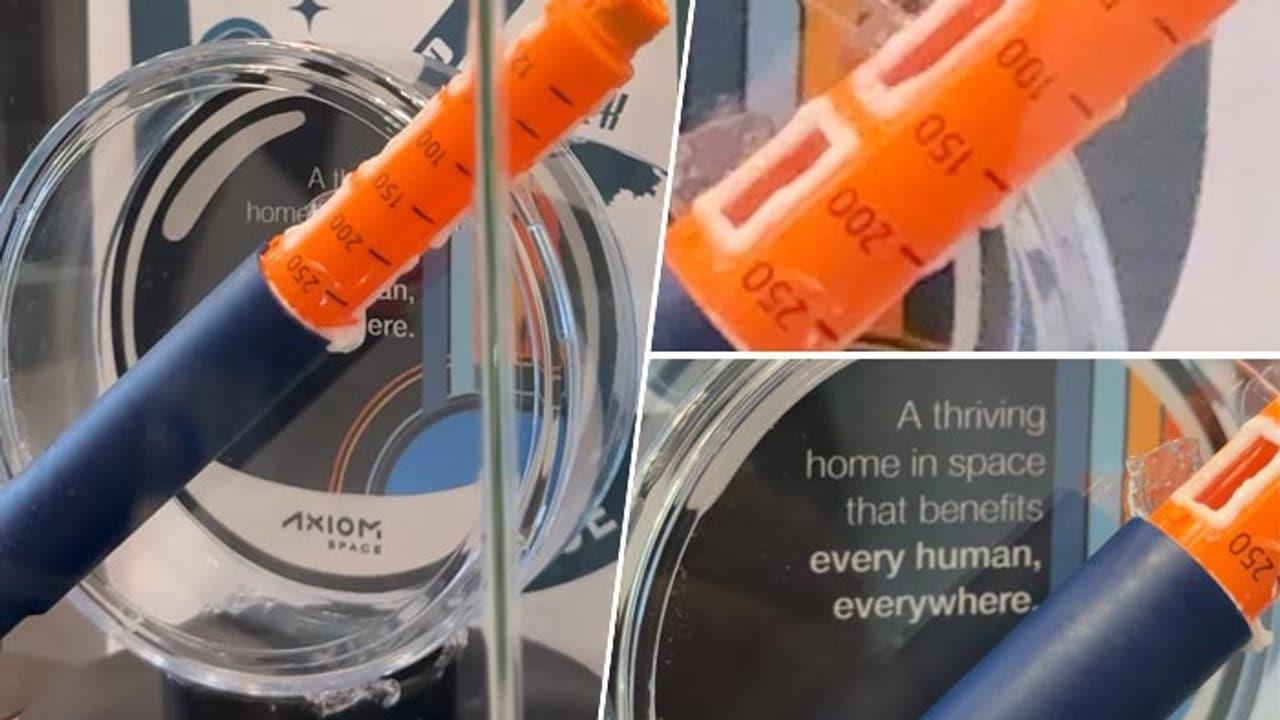Can People With Diabetes Go To Space? Shubhanshu Shukla's Breakthrough ISS Research Says YES!
Can people with diabetes ever travel to space? For decades, the answer was an unequivocal“no.” Strict medical requirements meant millions of people, no matter how capable, were excluded from astronaut selection. But in 2025, a breakthrough experiment during Indian astronaut Shubhanshu Shukla's International Space Station (ISS) mission has begun to rewrite that rulebook-and with it, the future of space medicine.
The Suite Ride research project, envisioned by UAE-based healthcare entrepreneur Dr. Shamsheer Vayalil and conducted in collaboration with US human spaceflight provider Axiom Space, has released preliminary results that may one day allow astronauts with diabetes to take part in missions beyond Earth.
Also read: How Shubhanshu Shukla's Axiom Mission 4 could open space to astronauts with diabetes
A Mission That Blends Hope and Science
Unveiled at the Burjeel Institute for Global Health in New York, and dramatically revealed to crowds at Times Square before the announcement, the research results are more than just data points. They signal a shift in how humanity thinks about health, chronic illness, and inclusion in the most extreme environments.
According to the World Health Organization, India alone has 77 million adults living with diabetes and nearly 25 million more at risk. For them, the mission is not just about space. It is about dignity, possibility, and proof that boundaries-medical or otherwise-can be redefined.
“India has always been at the heart of scientific progress. With Shubhanshu Shukla's mission and the success of Suite Ride, we are proud to contribute to a future where space exploration and healthcare breakthroughs serve not just astronauts but millions of people on Earth living with diabetes,” said Dr. Shamsheer Vayalil, Founder and Chairman of Burjeel Holdings.
The First Steps Toward Inclusive Spaceflight
During the Axiom Mission-4 (Ax-4), Shukla and his three crewmates spent 18 days in microgravity. Among their tasks: testing whether standard tools used by millions of people with diabetes on Earth-like continuous glucose monitors (CGMs) and insulin pens-could function reliably in space.
The results are groundbreaking. CGMs, which provide real-time tracking of blood sugar levels, worked with accuracy comparable to Earth readings, and transmitted data back to ground teams. Insulin pens were successfully flown to the ISS and are now undergoing post-flight testing to ensure their integrity.
“This isn't just about space exploration,” explained Gavin D'Elia, Global Head of Pharma, Axiom Space.“It's about inspiring people everywhere and that their goals of pursuing space exploration don't end at diagnosis. Together, we're advancing the potential to fly the first astronaut with diabetes, innovations in diabetes monitoring and remote healthcare.”
Several Historic Firsts
The Suite Ride initiative has already claimed a place in history with multiple firsts:
- The first-ever continuous glucose monitoring of astronauts aboard the ISS. The first insulin pens flown and tested in space. The first validation of glucose monitoring through multiple methods in microgravity.
Each milestone represents not just a technical achievement but a profound shift in inclusion, proving that a medical condition long seen as a barrier may not remain one in the era of commercial and international spaceflight.
Beyond Space: What It Means for Earth
While the dream of sending the first astronaut with diabetes into orbit is within sight, the research also promises tangible benefits here on Earth. Remote monitoring technology tested in orbit could transform healthcare in underserved regions, from isolated rural villages to offshore oil rigs.
“Burjeel Holdings initiated this study to pioneer space medicine in line with the UAE's space ambitions. Besides opening the door for astronauts with diabetes, these findings will also transform the way we deliver care here on Earth. From 250 miles above Earth to 25 miles offshore on oil rigs, we are advancing new models of remote care,” said Dr. Mohammad Fityan, Chief Medical Officer at Burjeel Medical City and Clinical Lead of the Burjeel–Ax-4 Space Health Research.
Carrying Forward a Legacy of Innovation
Space medicine has always had ripple effects on life on Earth. In the 1970s, technology designed for the Viking Mars mission was adapted into the world's first wearable insulin pump, changing diabetes care forever. The Suite Ride experiment continues that legacy-offering real-time monitoring in extreme conditions and extending healthcare possibilities far beyond hospitals and clinics.
As this new chapter begins, the mission is more than a scientific trial. It is a statement that the future of space exploration belongs to everyone-not just the healthiest, the youngest, or the most privileged.
With Shubhanshu Shukla's flight and the efforts of Dr. Shamsheer Vayalil and Axiom Space, humanity takes one step closer to ensuring that even chronic illness is no longer a permanent“No Entry” sign to the stars.
Legal Disclaimer:
MENAFN provides the
information “as is” without warranty of any kind. We do not accept
any responsibility or liability for the accuracy, content, images,
videos, licenses, completeness, legality, or reliability of the information
contained in this article. If you have any complaints or copyright
issues related to this article, kindly contact the provider above.
Most popular stories
Market Research

- Kintsu Launches Shype On Hyperliquid
- Barunson, Studio Behind Parasite, To Launch Nplug IP Remixing Platform On Story And Bring Flagship IP Onchain
- Moonbirds And Azuki IP Coming To Verse8 As AI-Native Game Platform Integrates With Story
- Leverage Shares Launches First 3X Single-Stock Etps On HOOD, HIMS, UNH And Others
- Alchemy Markets Launches Tradingview Integration For Direct Chart-Based Trading
- Dexari Unveils $1M Cash Prize Trading Competition






















Comments
No comment